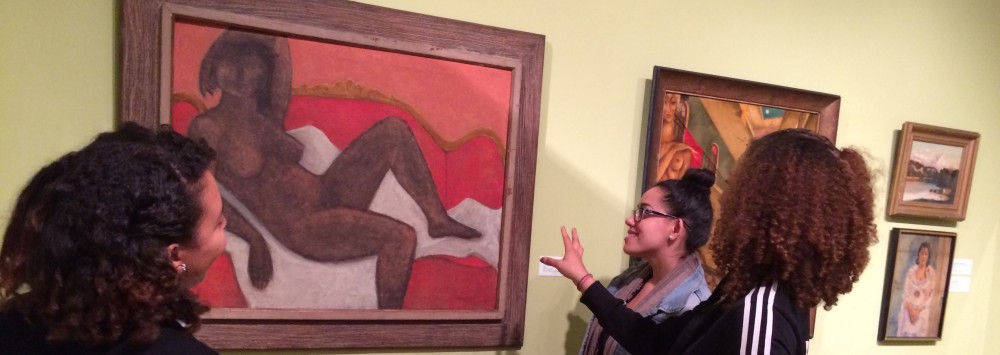Bryn Mawr College is pleased to announce a new pilot Museum Studies Program that provides a rich and dynamic education in both museum theory and practice. Students will have the opportunity to learn about the history of museums and their roles in society as well as engage with critical, theoretical museum scholarship. Through coursework and internships, students will also have the opportunity to gain practical hands-on experience in diverse museums in Philadelphia and beyond. Students can also gain experience in the College’s Special Collections of more than 50,000 objects from diverse regions around the globe as well as collections of rare books and prints, photographs and manuscripts. The Museum Studies program will be dynamic and inter-disciplinary, intersecting disciplines such as the History of Art, Anthropology, Archaeology, History, Cities, Biology and Geology. The program aims to empower students to change the world through their professional practices after Bryn Mawr and to become significant contributers to the world of museums and galleries.
For any questions regarding the Museum Studies program, please contact Dr. Monique Scott: Director of Museum Studies: mrscott@brynmawr.edu
THE MUSEUM STUDIES MINOR
The Minor in Museum Studies at Bryn Mawr requires six courses that include:
- Core courses (2): “Introduction to Museum Studies” and one course with an exhibition planning component, including the “Exhibition Seminar”
- Elective courses (2-3): These can be courses officially taught in museum studies as well as courses in other disciplines that include museum studies content. Students also can take advantage of the many relevant courses at Haverford (often in association with the Hurford Center Exhibitions program). Students also can take relevant courses at Swarthmore College and the University of Pennsylvania.
- Hands-on museum courses (2-3): Praxis courses and 1 Fieldwork Seminar
The two Core Courses will be:
HART 281: Introduction to Museum Studies
Using the museums of Philadelphia as field sites, this course provides an introduction to the theoretical and practical aspects of museum studies and the important synergies between the two. Students will learn the history of museums as institutions of recreation, education and leisure and how the museum itself became a symbol of power, prestige and sometimes alienation; debates around the ethics and politics of collecting objects of art, culture and nature; and the qualities that make an exhibition effective (or not). By visiting exhibitions, meeting with a range of museum professionals in art, anthropology and science museums, this course offers a critical perspective on the inner workings of the museum as well as insights into the “new museology.”
HART 301: Topics in Exhibition Seminar
How does the collection and display of artwork create meanings beyond the individual art object? In recent decades, enormous shifts have occurred in exhibition design as artwork projected from the walls of the museum, moved outdoors to the space of the street, and eventually went online. Students will learn to focus on the representation of art within one content area and learn to re-present it in an exhibition of their own design. Students will gain practical experience in the production of an exhibition: conceiving a curatorial approach, articulating themes, writing didactics, researching a checklist, designing gallery layout, producing print and web materials, developing programs, and marketing the exhibit.
The fieldwork seminar will be:
HART 200-level: Fieldwork Seminar
This seminar is designed for students conducting independent research projects in museums (or students that have conducted summer independent projects in museums). The course synthesizes the student’s academic and practical experiences. Students will engage with relevant museum studies literature, have critical reflections and discussions about their fieldwork experiences and produce a final paper about their museum research.
__
A student declares Museum Studies as a minor by meeting with the Director of Museum Studies and completing a minor work plan. The student can major in any department. Student internships in museums are considered vital “hands-on” learning opportunities for those who seek careers in museum practice. Students will also be encouraged to seek summer museum internships.
